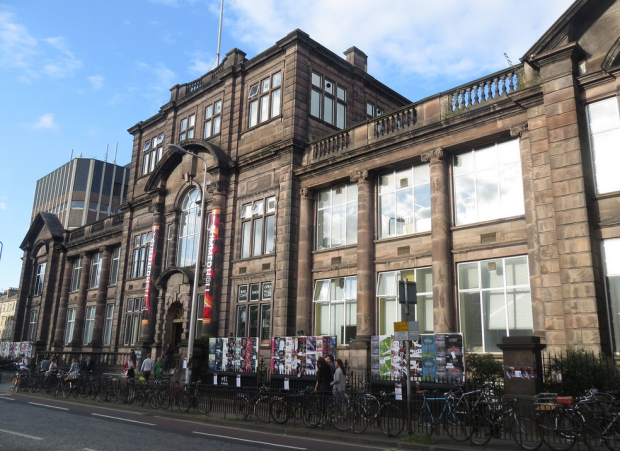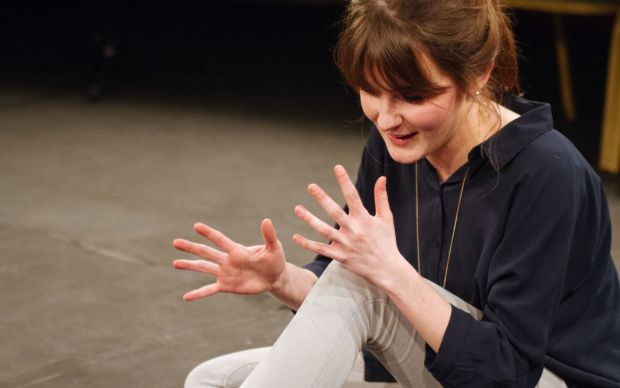Matt Trueman's Edinburgh diary – Are small companies being crowded out?
‘If you look around the Fringe this year, it’s full of big organisations’

© Liz Smith
The Fringe feels like it's shrunk again. Not in terms of shows, audiences or box office grosses – no doubt next weekend will bring new records on all fronts – but in terms of venues. I've found myself back at the same places over and over again: Assembly, Underbelly, Pleasance, Summerhall and the Traverse.
Seven or eight years ago, all the talk was of the 'Big Four', so much so that in 2008, they broke away to form their own festival in a festival, the Edinburgh Comedy Festival, to much grumbling and an infamous Stewart Lee broadside. (The title's since been dropped, though those four venues still share a brochure of their own, disappearing a couple of thousand of their competitors' shows in one feel swoop.)
In the last few years, it's felt much more diverse, with Summerhall, Forest Fringe, Northern Stage and a few others breaking up the party.
However, Summerhall's success has seen it swell in size. It has become the go-to place for alternative work. Northern Stage have moved in, so has Paines Plough's Roundabout auditorium, both with full seasons of their own. This year's Summerhall programme has very nearly 100 theatre shows listed – with a handful of music and visual art events on top. It's become the biggest theatre programme in the festival, twice the size of Underbelly's offering.
There's a Lyn Gardner line plastered all over its walls and its print: "You could spend the entire three weeks at Summerhall and never be bored for a second." It's true – but is that necessarily a good thing? Audiences there are reportedly up 40% this year. That's brilliant but you have to ask if they're down elsewhere as a result.
There's something else in this: an overall rise in quality. As I wrote last week, there is more decent work this year than ever. (Despite that, it's felt like an average year, with few surprises or stand-out shows.) The Fringe is more professional than ever.
If you look around the Fringe this year, it's full of big organisations. The Royal Court, Shakespeare's Globe, Soho theatre and the Bush are all represented. So too are the Young Vic, the Tricycle and the Gate. Regionally, you've got Paines Plough and Northern Stage, but also the Cardiff Millennium Centre, National Theatre of Scotland and Sherman Cyrmu. Add in the various international mini-programmes like Big in Belgium or the Czech Showcase, on top of established independents like Third Angel or Unlimited and you're looking at a lot of good work.
That's great for audiences, but again it begs the question as to what's being crowded out. What does it mean for Gecko to play the 760-seat Pleasance Grand with a show that's already proved its success? Where are those audiences coming from and what aren't they seeing as a result? Comedy has had this debate already, when big names like Jimmy Carr and Ricky Gervais swept in, sold out and swept out again. Curiously, that doesn't happen so often anymore. Will theatre follow suit?
The Fringe really suits 2015. It makes sense against a wider culture of independent outlets and pop-ups. A decade ago, remember, everything was branded: the Smirnoff Underbelly, Fosters logos all over the Pleasance Courtyard, the (ha!) if.comeddie award and before it the Perrier. There's still sponsorship, but it's far less in your face than it used to be. (Maybe our eyes have grown accustomed.)
These days, though, it feels much more cacophonous and varied – particularly when it comes to food and drink. Gone are the generic burger vans and hot-dog stalls. In their place is a miscellany of mobile eateries: Indian wraps, hog roasts, sliders and ramen and even, for god's sake, a crème brulee van. Summerhall has its own gin bar on wheels.
That seems to me much more in the spirit of the Fringe, an uncurated festival where everything has its place and punters genuinely take punts.

As I wrote back in week one – and, my god, that feels like a long time ago – the Fringe exists in the gaps between shows, as images and ideas start to recur and artists inadvertently end up in dialogue with one another.
For me, the 'thing' this year is that everyone has a story of their own. Portraits in Motion showed us snapshots of strangers: 12 seconds of someone else's life. Cinema, about the Cinema Rex fire in Iran, insists that each victim in the auditorium had a life as meaningful as any seen on screen. Kopierty's History of the World in Banalities told us that, "Every dying individual is a museum that burns down." Victoria Melody's Hair Piece tracks down the history of three hair extensions. In the international festival, Simon McBurney sought out an unrecorded indigenous tribe, while Robert Lepage told his father's life-story against the sweep of Quebecois history.
There is, I think, a preoccupation with listening and a question about who gets to speak – either to tell their story or to define the world. Sue MacLaine's Can I Start Again Please tucks its true meaning beneath its text, smuggling in its real subject of child abuse in subtext and in meaningful silence. Nye Russell-Thompson's Stammermouth struggles to get his words out, as do the characters in Lemons, Lemons, Lemons, Lemons, Lemons, battling against a government-imposed word limit. Dancing Brick's I'm Not Here Right Now speaks on another's behalf, as a (male) narrator defines a silent (female) protagonist. Manwatching had a female playwright use a male voice to get herself heard. Catherine Wheels' immersive kids show The Voice Thief is about voice amputation and the silencing of women.













